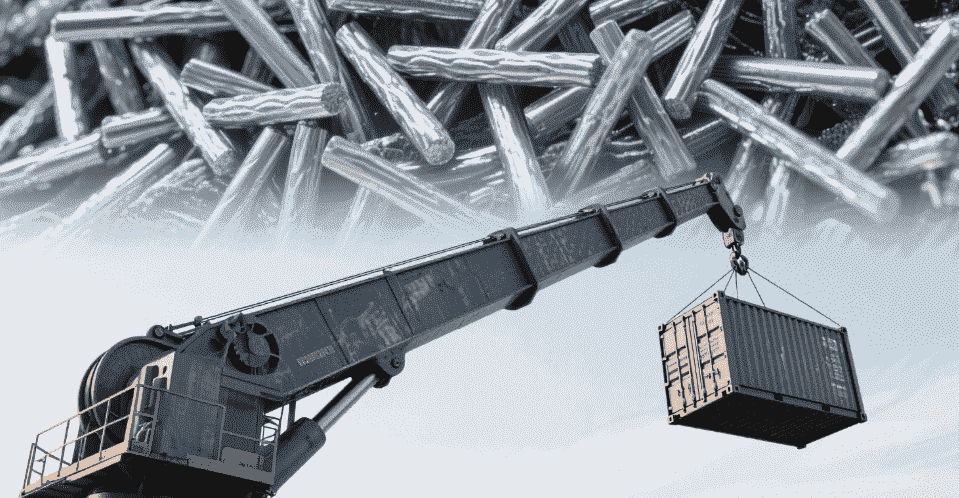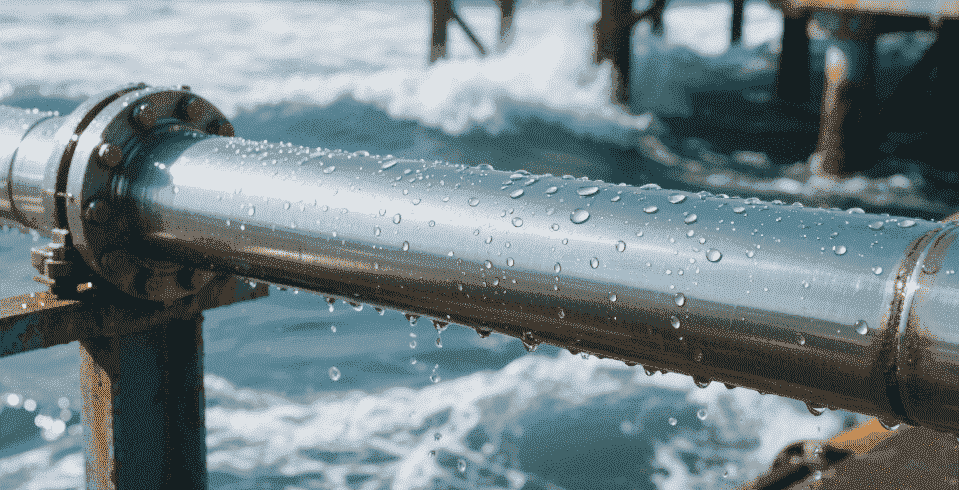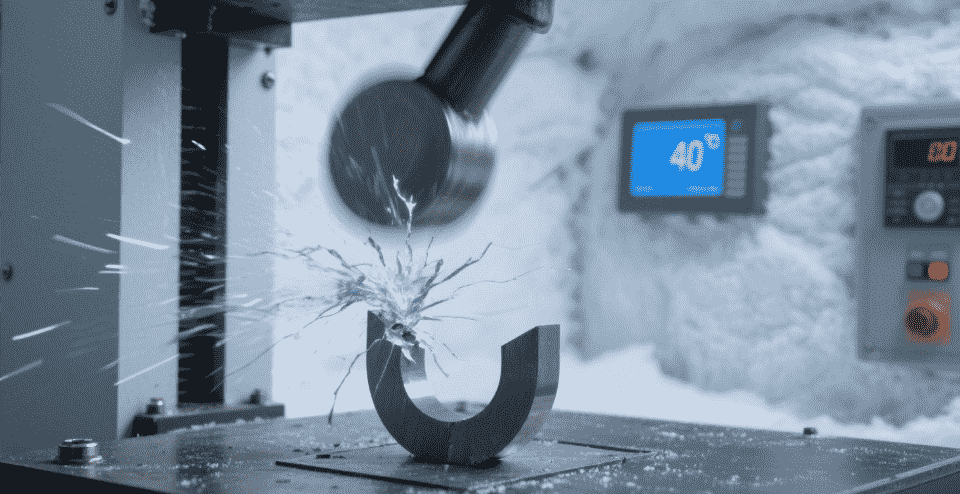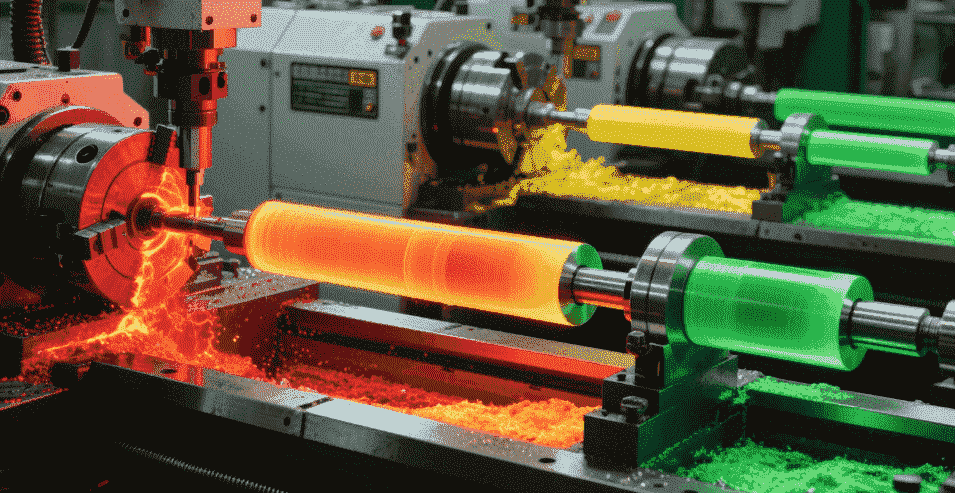
3 Steel Alloys That Boost Strength and Reliability
Table of Contents
Introduction

In the world of manufacturing, the choice of material plays a crucial role in determining the overall performance and longevity of a product. Among various materials, steel alloys are favored for their excellent mechanical properties, including strength, durability, and versatility. For industries such as automotive, aerospace, and heavy machinery, selecting the right steel alloy grade can make the difference between a product that performs reliably and one that fails prematurely.
In this blog, we will explore three of the most commonly used steel alloy grades that enhance product strength and reliability. These grades offer distinct benefits, making them highly sought after for applications that demand exceptional mechanical properties. Whether you need high strength, corrosion resistance, or impact toughness, the right steel alloy grade can ensure optimal performance and minimize the likelihood of failure.
1. Steel Alloy Grades for High Strength and Durability
The Importance of Strength in Steel Alloys
Strength is one of the most critical factors in the material selection process for industrial applications. Steel alloys are specifically designed to offer superior strength, which is crucial for maintaining the integrity of products exposed to heavy loads, high stresses, and extreme conditions. Without adequate strength, materials may fail prematurely, leading to significant downtime, costly repairs, and production delays.
Among the different steel alloy grades, Alloy Steel 4140 is widely recognized for its ability to endure high stress and heavy loads. This steel alloy is one of the most commonly used in manufacturing due to its exceptional mechanical properties, including high tensile strength, excellent fatigue resistance, and superior wear resistance. These properties make Alloy Steel 4140 ideal for high-performance applications where both strength and durability are essential.
Why Alloy Steel 4140 is Essential for Stronger Products
Alloy Steel 4140 is a chromium-molybdenum steel, engineered to provide enhanced hardness and increased resistance to abrasion. This makes it highly suitable for applications where parts are subjected to significant stress and harsh conditions. Some common applications of Alloy Steel 4140 include gears, shafts, crankshafts, and other critical machine components that require both strength and durability.
One of the standout characteristics of Alloy Steel 4140 is its exceptional hardenability, which means it retains its strength and toughness even after heat treatment processes. The ability to withstand heat and maintain structural integrity after forging or welding makes this alloy particularly valuable in industries where parts undergo frequent thermal stress.
Industries that rely heavily on Alloy Steel 4140 include:
- Automotive: Suspension components, crankshafts, gear shafts, and high-performance engine components.
- Aerospace: Aircraft structural parts, engine components, and landing gear.
- Energy Production: Hydraulic components and power transmission parts used in high-pressure systems.
By opting for Alloy Steel 4140, manufacturers ensure the durability and strength of their products, guaranteeing reliable performance even in demanding environments.
2. Steel Alloy Grades for Corrosion Resistance

The Role of Steel Alloy Grades in Corrosion Resistance
In many industries, strength is not the only factor to consider when selecting materials. Corrosion resistance plays a vital role, especially in environments where products are exposed to moisture, saltwater, acids, or chemicals. Whether in marine, food processing, or chemical industries, corrosion-resistant steel alloys are essential to maintaining the integrity and longevity of equipment and machinery.
Among the various steel alloy grades, Stainless Steel 316 stands out due to its exceptional resistance to corrosion, particularly in harsh environments. Stainless Steel 316 is one of the most commonly used alloys in applications requiring excellent resistance to rust, corrosion, and other forms of chemical attack.
Why Stainless Steel 316 is a Top Choice for Corrosion Resistance
Stainless Steel 316 contains molybdenum, an alloying element that significantly enhances its resistance to chloride Stainless Steel 316 contains molybdenum, a key alloying element that significantly enhances its resistance to chloride corrosion, making it the material of choice for environments exposed to saltwater and chemicals. This alloy is highly resistant to pitting, crevice corrosion, and stress corrosion cracking, which makes it an ideal material for industries that need dependable corrosion protection.
Applications of Stainless Steel 316 include:
- Marine and Offshore Equipment: Components such as pipes, valves, and fittings used in salty and corrosive environments.
- Chemical Processing Equipment: Reactors, heat exchangers, and storage tanks that come into contact with chemicals.
- Pharmaceutical Manufacturing: Equipment used in the production of pharmaceuticals where hygiene and corrosion resistance are paramount.
- Food Processing Machinery: Equipment that comes into direct contact with food products, ensuring a high level of cleanliness and resistance to corrosion.
By choosing Stainless Steel 316, manufacturers can ensure the longevity and reliability of their products, even in the most challenging environments.
3. Steel Alloy Grades for Impact Resistance

Why Impact Resistance is Crucial for Product Reliability
Impact resistance is a critical property for products exposed to high-impact forces, particularly in sectors such as automotive, aerospace, and mining. Materials used in these industries must be able to absorb shock without fracturing, ensuring the integrity and performance of the products even under extreme conditions. Steel alloys that offer superior impact resistance can prevent product failure caused by sudden shocks or heavy loads.
Among steel alloys, Alloy Steel 4340 is particularly well-regarded for its impact resistance. This medium-carbon steel alloy, with additions of nickel, chromium, and molybdenum, offers exceptional toughness and the ability to withstand high-impact forces. The combination of these elements makes Alloy Steel 4340 ideal for applications where impact resistance and toughness are paramount.
Why Alloy Steel 4340 is a Key Choice for Impact Resistance
Alloy Steel 4340 is renowned for its ability to absorb high-impact forces while maintaining its strength and toughness. This steel alloy grade is used extensively in industries such as aerospace, automotive, and energy, where components are subjected to sudden impacts or high-pressure environments.
Applications of Alloy Steel 4340 include:
- Aerospace: Landing gear, structural components, and critical parts that must endure extreme pressure and impact.
- Heavy-Duty Machinery: Mining equipment, bulldozers, and construction machinery exposed to harsh working environments.
- Tooling and Die Manufacturing: Components used in heavy machinery and tools that need high toughness and impact resistance.
- Automotive: Transmission components, chassis, and suspension parts that must withstand high stress and impact forces.
By using Alloy Steel 4340, manufacturers can ensure that components maintain their reliability and performance, even in the face of extreme impact conditions.
Comparison of Steel Alloy Grades for Product Strength and Reliability
| Alloy Grade | Strength (MPa) | Corrosion Resistance | Impact Resistance | Key Applications |
|---|---|---|---|---|
| Alloy Steel 4140 | 620-850 | Moderate | High | Automotive parts, machine components |
| Stainless Steel 316 | 520-710 | Excellent | Moderate | Marine equipment, food processing machinery |
| Alloy Steel 4340 | 980-1180 | Moderate | Very High | Aerospace, mining equipment, heavy machinery |
4. How Steel Alloy Grades Affect Manufacturing Efficiency

The Role of Steel Alloys in Improving Production Processes
The choice of steel alloy grades plays a crucial role in the efficiency of manufacturing processes. Some alloys, like Alloy Steel 4140, are easier to machine, weld, and form compared to other materials. This ease of processing leads to shorter production cycles, less machining time, and reduced operational costs. These advantages are particularly valuable for manufacturers looking to optimize their workflow and meet tight production schedules.
Alloy Steel 4140, for instance, has excellent machinability and can be processed using conventional manufacturing techniques. Its toughness and strength, combined with relatively easy workability, make it ideal for mass production of parts like gears, shafts, and automotive components. Alloy Steel 4340, on the other hand, is a more demanding material to process due to its increased hardness and toughness. It may require more advanced tools, specialized welding techniques, and heat treatment to achieve the desired properties. While this increases the processing time, 4340 is indispensable in applications where superior impact resistance and strength are required, such as in aerospace and automotive industries.
How Steel Alloy Grades Influence Cost-Efficiency
Cost is always a consideration when selecting materials for manufacturing, and steel alloy grades are no exception. Some alloys, such as Stainless Steel 316, are more expensive due to their superior corrosion resistance and other properties. However, the long-term benefits, such as reduced maintenance costs and longer product life, can outweigh the initial material costs. For applications where cost is a critical factor, Alloy Steel 4140 provides a balanced solution, offering good strength at a lower price point.
Conclusion
In conclusion, the right steel alloy grade plays a significant role in enhancing product strength, reliability, and overall performance. Whether you are looking for high tensile strength, corrosion resistance, or impact toughness, Alloy Steel 4140, Stainless Steel 316, and Alloy Steel 4340 are three excellent choices. These alloys are widely used across a range of industries, from automotive to aerospace, and offer the durability and performance needed for demanding applications.
By understanding the properties of these steel alloys, manufacturers can make informed decisions that ensure the longevity and reliability of their products, reducing the likelihood of failure and enhancing overall manufacturing efficiency.
FAQ
What is the best steel alloy grade for high-strength applications?
Alloy Steel 4140 is highly recommended for high-strength applications due to its excellent hardness and wear resistance.
How does corrosion resistance impact steel alloy selection?
Corrosion resistance is essential for products exposed to harsh environments. Stainless Steel 316 is the best choice for such applications, offering excellent resistance to rust and corrosion.
What is the impact resistance of Alloy Steel 4340?
Alloy Steel 4340 offers exceptional impact resistance, making it ideal for high-stress applications such as aerospace and mining equipment.
How do steel alloy grades affect production costs?
Higher-performance alloys, such as Stainless Steel 316, can be more expensive, but they offer long-term benefits like reduced maintenance costs. Choosing the right steel alloy grade can optimize cost-efficiency.
Which steel alloy grade is best for marine environments?
Stainless Steel 316 is the best choice for marine environments due to its excellent resistance to chloride corrosion, ensuring reliability in salty and humid conditions.
What are the key differences between Alloy Steel 4140 and Alloy Steel 4340?
Alloy Steel 4140 is known for its excellent strength and wear resistance, while Alloy Steel 4340 offers superior impact resistance and toughness. 4340 is commonly used in applications requiring high toughness, such as aerospace, whereas 4140 is preferred for applications needing high strength and hardness, like automotive components.
Can Alloy Steel 4140 be used for high-temperature applications?
Yes, Alloy Steel 4140 can be used for moderate high-temperature applications. It retains good strength and wear resistance even in temperatures up to 1000°F (537°C). However, for extreme high-temperature environments, other alloys like Alloy Steel 4340 or Stainless Steel grades may be more appropriate.
How does Alloy Steel 4140 compare to other steel alloys for fatigue resistance?
Alloy Steel 4140 is highly regarded for its fatigue resistance, particularly in mechanical applications involving rotating components like shafts and gears. Compared to other alloys like Stainless Steel 316, 4140 offers superior resistance to wear and stress fatigue, making it ideal for components subjected to cyclic loading.
Why is Stainless Steel 316 more expensive than other steel alloys?
Stainless Steel 316 is more expensive due to its alloy composition, which includes molybdenum, making it highly resistant to corrosion, especially in chlorides and harsh environments. The enhanced corrosion resistance, durability, and higher manufacturing costs contribute to its increased price compared to other alloys.
How does heat treatment affect the properties of Alloy Steel 4340?
Heat treatment significantly enhances the properties of Alloy Steel 4340, improving its toughness, hardness, and tensile strength. This alloy is often quenched and tempered to achieve optimal mechanical properties, especially for applications requiring high impact resistance and strength under stress.






